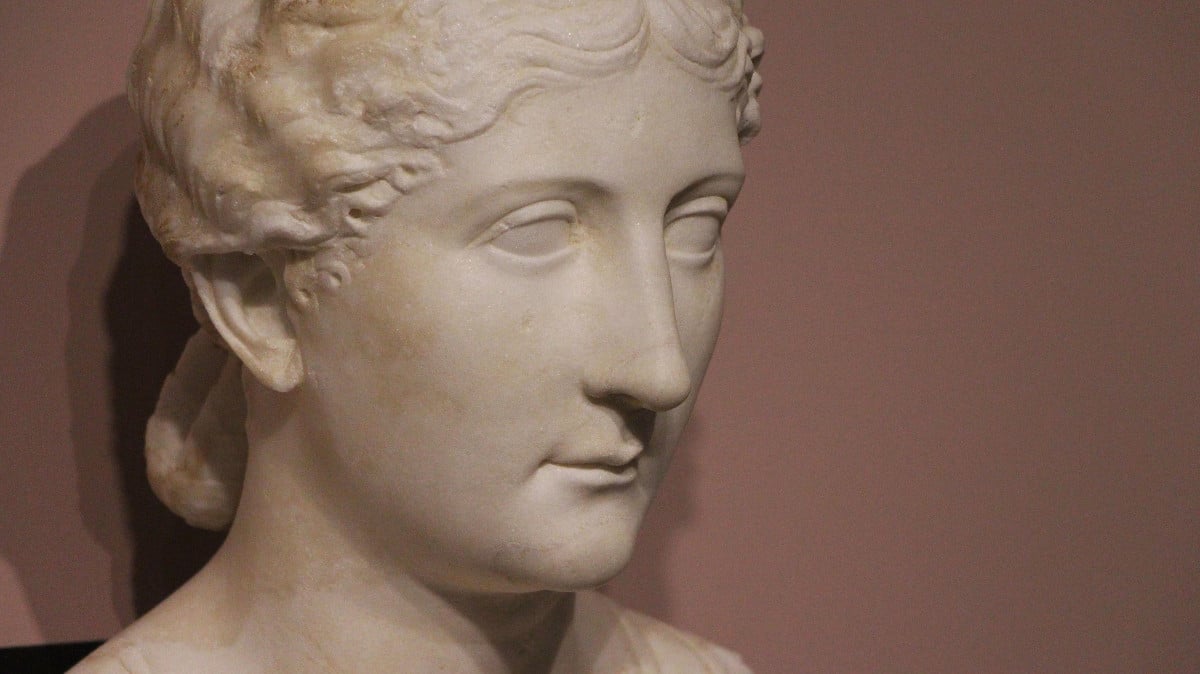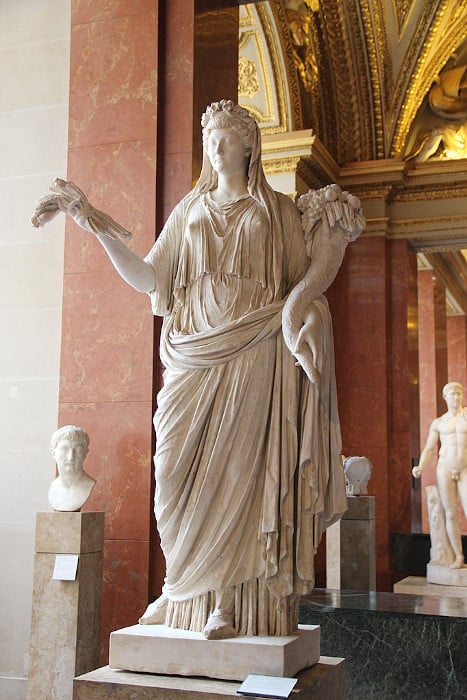
Antonia, Life and Death of the Matriarch of Rome
In 40 BC, Mark Antony married Octavia, sister of Octavian (later known as Emperor Augustus). It was a political marriage approved by the Roman Senate to strengthen the alliance between Octavian and Antony during the Second Triumvirate. Octavia travelled with her husband to many different provinces and lived with him in his mansion in Athens between 40 and 36 BC. Their youngest daughter Antonia, known to historians as Antonia Minor to distinguish her from her older sister Antonia Major, were born in 36 BC.
Antonia never knew her father. Antonia's mother moved her and her brothers from Athens to Rome as soon as she was born because Antony abandoned them to be with Cleopatra, a love story that began a year before his marriage to Octavia. However, Octavia’s devotion to her husband and brother never wavered. Octavia was a key figure in an armaments bargain struck at Tarentum in 37 BC, in which Antony and Octavian pledged to support each other in their Parthian and Sicilian wars. Following Antony's catastrophic war in Parthia in 35 BC, Octavia brought new troops, supplies, and money to Athens for her husband. Nonetheless, Mark Antony divorced Octavia in late 33 BC and had men remove her from his home in Rome. Antonia was three years old at the time. She was six years old when Antony died.
- A Hero’s Send-Off To Rome’s General Drusus The Elder, First Germanicus
- Three Daughters Of Saintly Germanicus And Sisters Of Decadent Caligula
Despite painting his adversary as a traitor, Augustus, out of love for his sister Octavia, permitted his nieces to inherit their father's wealth. Antonia became a wealthy and influential young woman after inheriting huge estates in Italy, Greece, and Egypt.
The Price of Marrying a Hero
When Octavian became Rome's only ruler and adopted the name Augustus, he set about cementing the dominance of his extended family. He was active in strengthening his dynasty through carefully planned marital arrangements. He had no sons of his own, but his marriage produced one daughter, Julia. However, his marriage to his second wife, Livia Drusilla, gave him two stepsons. Tiberius, the older of these sons, was born in 42 BC and later became Emperor Tiberius. The second, Nero Claudius Drusus, was born in 38 BC, and Augustus chose him as Antonia's husband. Antonia and Drusus married in 16 BC, when she was approximately 20 years old. Their oldest surviving son, Germanicus, was born a year later.

A Roman Marble Status of Empress Livia as the Goddess Ceres. (Public Domain)
Antonia and Drusus went on to have several children, but only three survived: Germanicus, who eventually became one of Rome's best generals; Claudius, the future Emperor; and Livilla, who subsequently married Emperor Tiberius' son Drusus Julius Caesar, also known as Castor. Antonia, then, was possibly the perfect personification of Augustus' successful endeavour to consolidate his authority, as she was the mother, grandmother, and great-grandmother of Roman Emperors Claudius, Caligula, and Nero.
Antonia’s husband, Drusus, and his brother Tiberius were effective commanders for Augustus in the Alpine and Danube regions, as well as lands ruled by German tribes east of the Rhine. Between 15 and 9 BC, their successes earned them and Augustus renown. Drusus entered the cursus honorum in 18 BC, five years before the legal age, rising to the rank of praetor in 11 BC and consul in 9 BC. He was about twenty-nine years old when he died that year while campaigning in Germany.
Tiberius rushed to his brother's deathbed and brought his remains to Rome for a lavish funeral. Tiberius offered one eulogy, while Augustus delivered another in his capacity as Emperor and stepfather. Drusus' ashes were interred in the Mauseoleum that Augustus had erected for his family, and he was given the honourable cognomen Germanicus, which would be passed down to his male descendants. As a consolation, his mother, Livia, also received honours.
The Warrior, the Emperor, and the Matriarch of the Court
When Drusus died, Antonia was just 27 years old. Being a hero's widow, as well as being healthy and wealthy in her own right, provided her with the possibility for a new marriage and an additional dynastic connection. Despite Augustus' urgings, Antonia never remarried. Instead, she remained an important presence in the imperial court, embodying the Roman ideal of the pure lady, a univira, a woman who married just once in her life. It was an ideal that was rarely realised in a society where a beneficial marriage alliance is viewed as the utmost importance.




